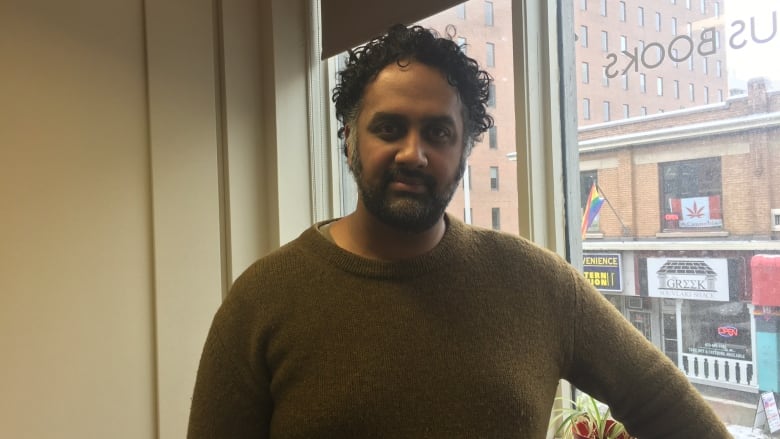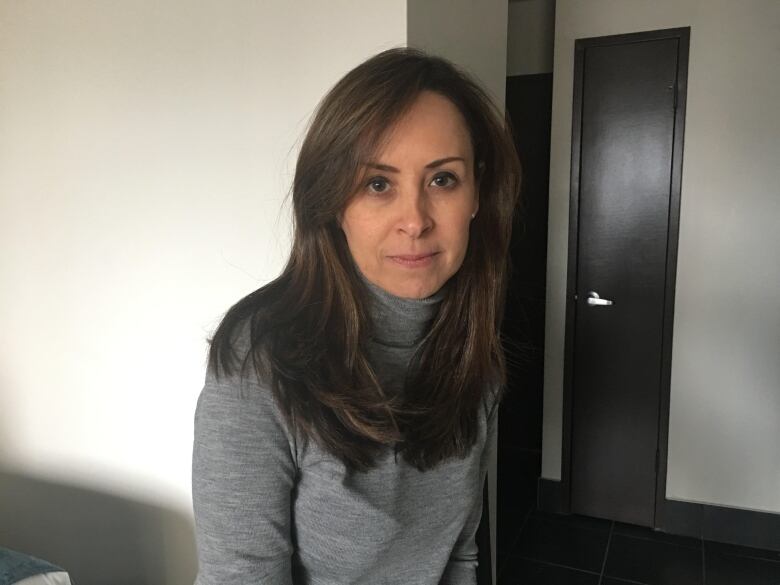International health advocates in Ottawa to discuss Trump's 'global gag rule'
Reproductive and sexual health organizations grapple with loss of funding

International health advocates are gathering in Ottawa on Tuesday to discussreproductive andsexual health in Latin America and the Caribbean in light of U.S. President Donald Trump'sreinstatement of the "global gag rule."
Trump restoredthe rule, officially known asthe Mexico City Policy, onJan. 23. Itprohibits foreign non-governmental organizations from receiving U.S. funding if theyprovide abortion services or counselling even if abortion is legal in theircountry.
-
Canada, Netherlands discuss fund to counter Trump abortion order
-
Canada to increase reproductive health funding as Trump orders cut
The International Planned Parenthood Federation (IPPF) partnered withAction Canada for Sexual Health and Rights to bring together experts from Brazil, Colombia and Guyana to share their challenges andexperiences withGlobal Affairs staff andCanadian parliamentarians.
"Zika has reallyexacerbatedquite a lot of shortcomings within the health systems in that region andexacerbated a lot of inequalities that exist," said Sandeep Prasad, executive director of Action Canada for Sexual Health and Rights.
"What we want to do is make sure that we give voice to those issues that are happening and that they're not forgotten from Canada's development agenda. We know that for many donor countries, Latin America is considered 'middle income' and for that reason it's often de-prioritized from the agenda of many donors."
Could lose $100M, federation claims
The IPPF,which is one of the biggest family planning organizations in the world,claims it stands to lose $100 million US as a result of the rule.
Prasad said manyother internationalfamily planning organizations will also be affectedby the swift change in U.S. policy,particularly those grappling with Zika.
"There willbe many organizations [and] service providers that are doinga lot of work related to abortion, related to family planning and contraceptionor HIV prevention that will effectively be de-fundedby the U.S. government because of the shift in policy."
According toMarieStopesInternational, the order could result in 6.5 million unintended pregnancies and 2.1 million unsafe abortions during Trump's first term.
Colombia: Acase study

"We have very sophisticated laws that really take into account sexual and reproductive rights," said executive director Marta Royowho travelled to Ottawa for Tuesday's discussion."But what is written means nothing if you cannot make sure everyone has access to services."
Profamilia has 35 clinics in Colombia and assistsalmost 700,000 people a year,making itthe biggest provider of reproductive and sexual health services in the country.Royo said the organization'sclinicswon't be greatly affected by the policy, but their workin 10of the poorest and most neglected regions inColombia such asthe towns of Apartado and Turbo in the central northwestern region will be.
"These are communities that are very hard to reach. They are not in the main cities. It is only throughthis type of funding that we're able to put together the doctors, the nurses and the counsellors that are neededto go and work in these communities. It's not our usual day-to-day work," she said.
Royo saidthere are about 400,000 unsafe abortions in Colombia every year.
"These are young women, theseare children," said Royo. "You're starting to see...pregnancies in children... 10, 11, 12 year-olds who are getting pregnant."
The townstargeted for USAIDare also the ones most affected by the ongoing drug trade in Colombia and the intensive fighting betweenFARCrebels and the military, Royo said. "Almost eight million people in Colombia are victims of the war conflict."
Canada's response
Every woman + girl must be treated with dignity and respect. Watch Canadas position on sexual reproductive health & rights #SRHR pic.twitter.com/3xxPkne8wG
—@CanadaDev"There are an estimated 22 million women and girls who, every year,out of despair, put their lives at risk by undergoing a clandestine abortion," said Bibeauin the video.
"Canada will contribute to sex education for girls and boys, to the provision of contraceptives, to family planning, to legal, safe abortions and, of course, to maternal and newborn health."
In an email to CBC News, Bibeau saidCanada will increase its investments to support advocacy work for women's reproductive rights, including safe abortion and post-abortion carewhere legal.
She also said her ministry isin the process of reviewing Canada's global assistance budget, which will be finalized in the coming weeks once the federal budget is released.












_(720p).jpg)


 OFFICIAL HD MUSIC VIDEO.jpg)
.jpg)



























































































